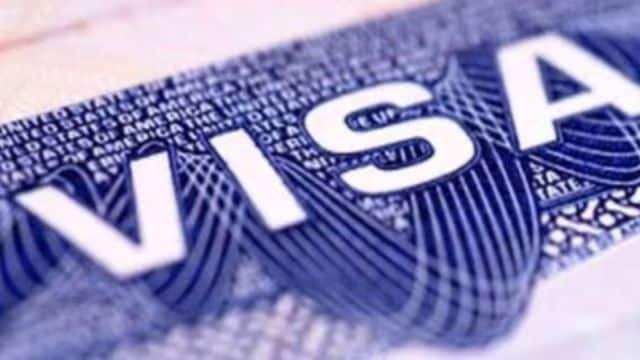Every year, nearly 1 lakh Indian students head to Australia to pursue higher studies. According to government data, 1,00,009 Indian students were present in Australia in 2022.
In 2019, 73,808 Indian students went to Australia on student visas, 33,629 in 2020 and 8,950 in 2021. While it has been a favourable study-abroad destination among Indian students for years, the recent changes and news coming from Down Under have been discouraging students.

As per local reports from Australia, the country has witnessed a surge in visa rejections due to some universities withdrawing admission offers. According to a report by Times Higher Education, the University of Wollongong and La Trobe University have retracted offers to students who did not have strong application. However, the two universities have denied these allegations.
Story continues below this ad
“I can confirm that La Trobe University has not cancelled any confirmation of enrolments (CoE) from India,” a spokesperson from the varsity told indianexpress.com.
“DoHA (Department of Home Affairs) visa outcome monitoring recently identified an elevated risk of non-genuine applications, and UOW is adjusting processes related to admission and genuine temporary entrant screening processes in response to this,” the University of Wollongong spokesperson said in a written statement to indianexpress.com.
Another popular Australian university, Deakin University, also confirmed that the varsity is currently conducting its admission process. The varsity welcomed nearly 3,000 Indian students in 2023. “As a popular destination for students from India who desire to study in Australia, we expect to have the same number as 2023, give or take a little more. The process for applications and enrolments for the academic year 2024 is still underway,” said Ravneet Pawha, vice-president (Global Alliances) and CEO (South Asia), Deakin University.
While the varsities claim they are not rejecting applications, study-abroad experts believe the impact is being seen in the recent study visa applications. “There is anticipation that the overall migrant intake will decrease to 3,75,000 in the current financial year and further decline to 2,50,000 in the following year. The impact of these rejection rates and the stringent guidelines introduced by the Australian government is noticeable. Many applications are being rejected without clear information provided by the authorities, increasing the uncertainty for prospective international students,” said Gaurav Batra, founder and CEO of Infinite Group.
Story continues below this ad
After hearing such news, a student planning to apply for an Australian university is rethinking his plans. “I was to apply to Australia in the coming session. My sister studies in Canada and things have been bumpy there, so we thought Australia would be a safer and equally good choice. But after hearing all this news, I have decided to apply for New Zealand instead. The quality of studies is almost the same, but the guarantee of a study visa and post-study work visa is much higher,” said a student from Punjab.
Experts believe that a poorly written or unconvincing GTE (genuine temporary entrant) statement, failure to meet the academic requirements for the chosen course, and providing false or misleading information or documents are some of the reasons for visa refusal.
The GTE statement is a crucial part of the visa application process to demonstrate the intention to stay in Australia only temporarily for studies and then return to the home country. “An unconvincing GTE statement raises doubts about the applicant’s genuine intentions and can lead to rejection. Failing to meet the academic requirements for the chosen course can result in visa rejection. Make sure you meet the minimum entry requirements for your intended course. Providing misleading information and not being authentic is a severe offence and can result in immediate rejection. This can even lead to longer-term bans in the future,” says Rohit Sethi, director, ESS Global.
Recent changes to student visa
In December 2023, the Australian government increased the minimum English language requirements for student and graduate visas. As per the revised rules, from early 2024, the test score required for a Temporary Graduate visa will increase from an IELTS score of 6.0 to 6.5; for a student visa, it will increase from IELTS (or equivalent) 5.5 to 6.0.
Story continues below this ad
The government had also introduced a new genuine student test for all international students. This test will replace the existing GTE requirement to acknowledge that post-study temporary migration (and beyond) pathways are available for those who may be eligible. The government also decided to scrutinise high-risk student applications and crack down on unscrupulous education providers.
In addition to this, the amount of savings international students will need to be eligible for a student visa was also increased. Applicants now need to show evidence of $24,505 in savings, which is a 17 per cent increase from previous levels.

































